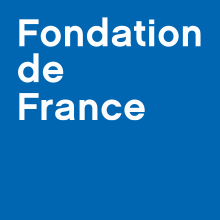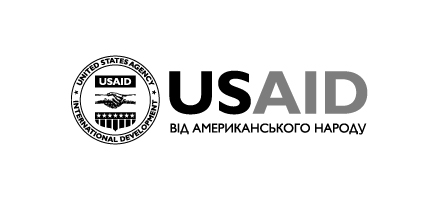
In January, the Kyiv City Administration implemented information accessibility standards for people with visual impairments for its information resources. This decision was made in response to an appeal initiated by the DOCU/CLUB Network and signed by Kyiv citizens.
Reprinted from the website Hromadske Prostir.
On December 14, 2023, the Network with the support of the Ukrainian-Danish Youth House organized a discussion in Kyiv about the ways to ensure the right of access to information for visually impaired and blind people.
The discussion, entitled "Helping to See in the Dark," brought together representatives of the media, NGOs, and concerned citizens. The purpose of the meeting was not only to discuss ways to make information in the media and on official websites more accessible, but also collect signatures and submit an appeal to the city authorities.
In summer 2023, the Ukrainian government adopted a resolution requiring public authorities to make their websites accessible in accordance with international standards for people with visual, hearing, or motor impairments. However, the standard itself is not yet publicly available. Therefore, most websites of state and local authorities still do not meet the accessibility criteria. NGOs, activist communities, and concerned citizens monitor the implementation of these criteria in the media and try to speed up the process.
Ukraine already has experience of successful implementation of accessibility standards in the media by local authorities. The Lviv City Council adopted the corresponding decision in the summer of 2023. This decision was the result of an advocacy campaign implemented by the Docudays UA Film Club at the Lviv Municipal Library.
Vira Karpinska, the film club moderator, together with like-minded people developed a guide for the authorities and media representatives called “News accessible to everyone” - a short step-by-step guide for journalists and SMM specialists on how to make news on social media or websites accessible to people with visual impairments.
The initiators of the advocacy campaign held meetings with government officials, communication specialists, journalists, and citizens to share the recommendations and explain why it is so important for the media to follow them.
According to the National Health Service of Ukraine, the number of people with visual impairments in Ukraine has increased dramatically since the start of Russia's full-scale invasion - in just 7 months of last year, doctors recorded 19,000 such cases. It is the responsibility of the authorities and the media to ensure the right of these people to access critical information.
The participants of the discussion "Helping to See in the Dark" emphasized the importance of accessibility standards and the need to implement them in Kyiv. The moderator of the meeting, Vira Karpinska, spoke about the course of her advocacy campaign and the results achieved in Lviv. The participants of the discussion watched the documentary “Giovanni and the Water Ballet” by Dutch director Astrid Bussink. The film was screened with audio description of everything happening on the screen. This helped the audience achieve a deeper understanding of how visually impaired people perceive information.
After the screening and discussion, the audience had the chance to sign an appeal to the Kyiv City State Administration and the Kyiv City Council to implement accessibility standards in the media. Vira Karpinska sent the appeal to the authorities. In January, the initiators of the discussion received a response.
The Department of Information Support and Access to Public Information of the Kyiv City State Administration has taken the appeal into consideration and is actively working on implementing the recommendations contained in the guide. According to the department head Kateryna Baranova, the official Kyiv portal, the KCSA telegram channel, and the city government's social media pages will now post photos and text content taking into account the basic principles of information accessibility for visually impaired and blind people. The department's specialists have developed a version of the portal for people with visual impairments and prepared a map of bomb shelters and a list of heating points in a format accessible to people with visual impairments. In addition, the specialists responsible for social media management received recommendations on how to add alternative text to images and infographics to make this information accessible as well.
The results of the discussion and the appeal from the public encouraged the KCSA Department of Information Support to join webinars and trainings on barrier-free and inclusive information space.
The examples of Lviv and Kyiv have shown that making news accessible is easy. We hope that such solutions will soon become a blueprint for other cities all over the country.
The development of the DOCU/CLUB Network is funded by the United States Agency for International Development (USAID), the Embassy of Sweden in Ukraine, the National Endowment for Democracy (NED) and the Fondation de France.
The opinions, conclusions, or recommendations are those of the authors and compilers of this publication and do not necessarily reflect the views of the governments or charitable organizations of these countries. The authors and compilers are solely responsible for the content of this publication.




